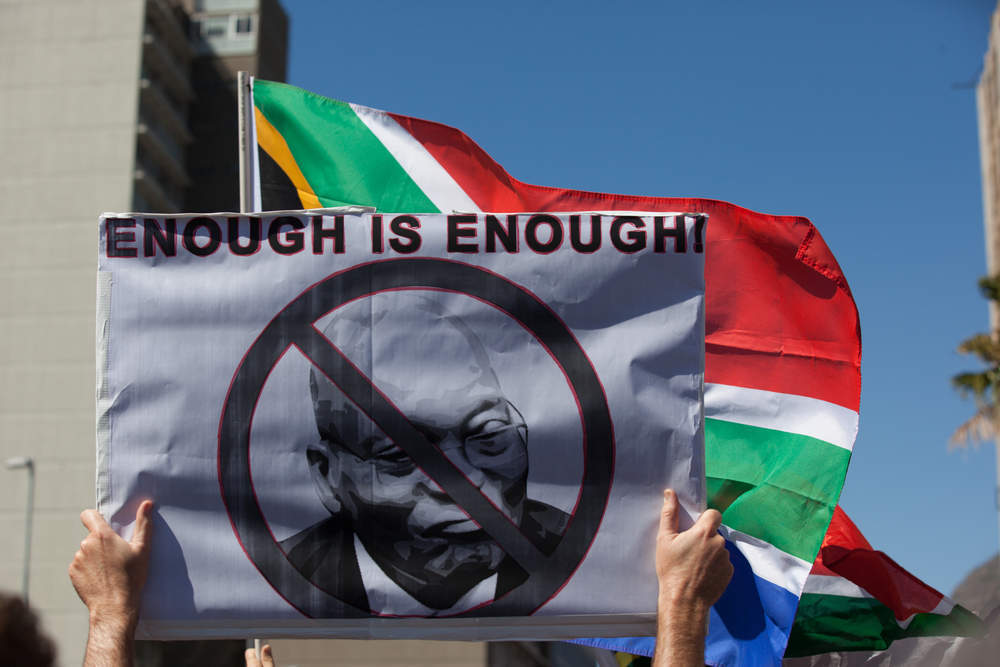Former South Africa president Jacob Zuma summed his refusal to accept his economic failings in his final press conference: “What is it I have done?”
Departing as a president who appeared insouciant to scandal, Zuma was disconcertingly lacking in coherent economic policy and seemingly unaware of his own role in the troubles faced by the South African economy throughout his tenure.
Only after learning of the decision from his own party to support an opposition motion of no-confidence did he finally go.
For South Africa’s economy this is excellent news.
The now formerly embattled president was frequently accused of being part of the corruption problem he claimed to be fighting against. Zuma now faces the reinstatement of 783 counts of corruption after a court ruled the decision to drop charges to be “irrational”.
He appears likely to be asked to testify in a judicial commission inquiry into ‘state capture’ by the Gupta brothers, who happen to be business associates of his son. The raiding of the Gupta household by police may have hastened the outcome.
How well do you really know your competitors?
Access the most comprehensive Company Profiles on the market, powered by GlobalData. Save hours of research. Gain competitive edge.

Thank you!
Your download email will arrive shortly
Not ready to buy yet? Download a free sample
We are confident about the unique quality of our Company Profiles. However, we want you to make the most beneficial decision for your business, so we offer a free sample that you can download by submitting the below form
By GlobalDataThe removal of the president now means work can begin to repair the damage inflicted upon the wider economy.
Power supply, for instance, has been a fundamental problem for the economy, and one which Zuma has failed to adequately address.
Efforts to build nuclear power stations were clunky at best; incompetent at worst. Under the Zuma presidency blackouts became far too common, especially during 2015.
Issues such as this, and many others besides, have harmed the ability of the economy to grow. Blaming problems upon the legacy of apartheid scarcely helped matters.
Prospects for the implementation of viable solutions to longstanding economic problems will not happen instantly under what is expected to be the leadership of deputy president and ANC leader Cyril Ramaphosa.
Ramaphosa has promised a radical overhaul of the nation’s economy.
Doing so will not be easy, but is a task made possible with the end of Jacob Zuma. In his first speech as ANC party leader a battle against graft was announced alongside a desire to tackle inequality through job creation growing the economy.
Ramaphosa is generally regarded as being more business friendly than Zuma ever proved himself to be – a useful trait given record-high joblessness and fractious industrial relations between the government of the former president and unions.
Encouraging investment into the South African economy is vital, especially from overseas. Corruption, unemployment and a lengthy list of critical social problems have resulted in a failing economy.
The JSE Exchange, the largest stock exchange in the country, certainly believes him to be an improvement after rising nearly 3% in value following the resignation announcement.
Whilst much work lays ahead to grow the economy and improve business performance, ending the reign of a poorly performing president constitutes helpful progress.







